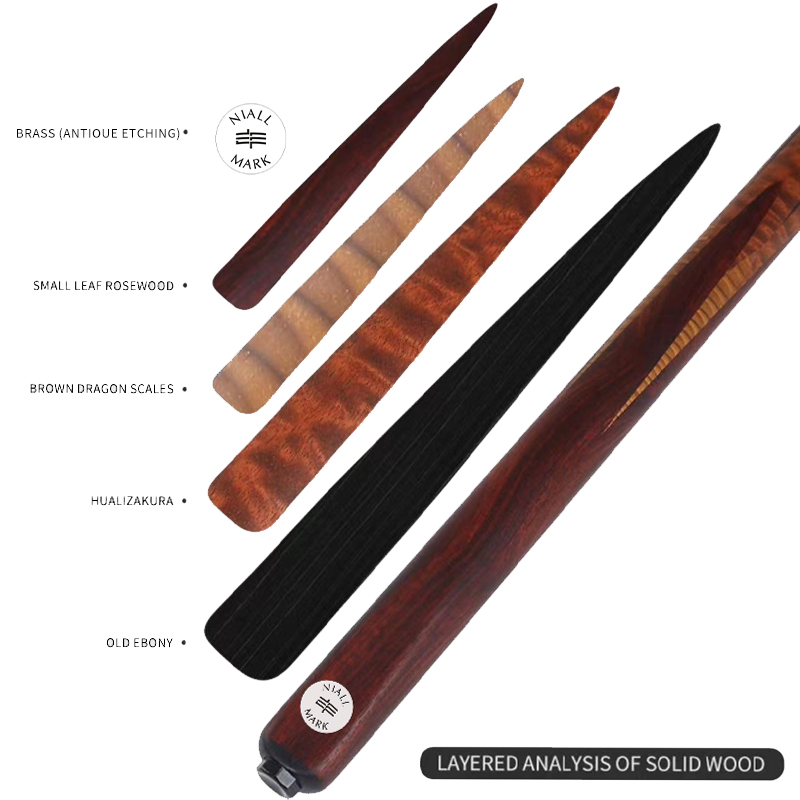The lyered analysis of solid wood for the butt of a cue is a precise and complex craftsmanship that combines aesthetics, mechanics, and practicality, aiming to create a cue that is both beautiful and functional. Here is a detailed analysis of the solid wood layers in the cue butt:
Firstly, the outer layer typically consists of precious hardwood species such as rosewood and huanghuali. These woods possess unique grain patterns and colors, adding elegance and dignity to the cue. Moreover, their high density and hardness provide excellent support and stability, ensuring powerful and precise strikes.
Secondly, the middle layer offers flexibility in choice, depending on the overall design and performance requirements of the cue. Common middle layer woods include maple and oak, which strike a balance between hardness and flexibility. They enhance the structural strength of the cue while providing a certain degree of elasticity and cushioning, improving both comfort and feel during play.
Thirdly, the inner layer typically comprises softer and lighter woods such as pine or paulownia. These woods absorb and disperse impact forces generated during striking, reducing vibrations felt in the hand and protecting against injury. Additionally, their lightness contributes to a reduced overall weight of the cue, making it easier to swing and maneuver.
The adhesive and craftsmanship used in the layered design are crucial. High-strength adhesives are employed to bond the layers securely, ensuring they remain firmly attached and do not separate. Furthermore, meticulous grinding and polishing techniques are applied to achieve a smooth and tactile finish on the cue's surface.
Finally, the layered design strives to achieve a balance between performance and aesthetics. Through careful selection and arrangement of different woods, unique grain patterns and color effects can be created, making each cue not only functionally superior but also visually appealing and expressive of individuality.
In conclusion, the layered design of solid wood in cue butts is a technical and artistic process that integrates various techniques and skills. By meticulously selecting and combining different types of woods, coupled with sophisticated adhesive and craftsmanship techniques, cues that are both practical and beautiful can be crafted, providing a more enjoyable and comfortable gaming experience for cue enthusiasts.
